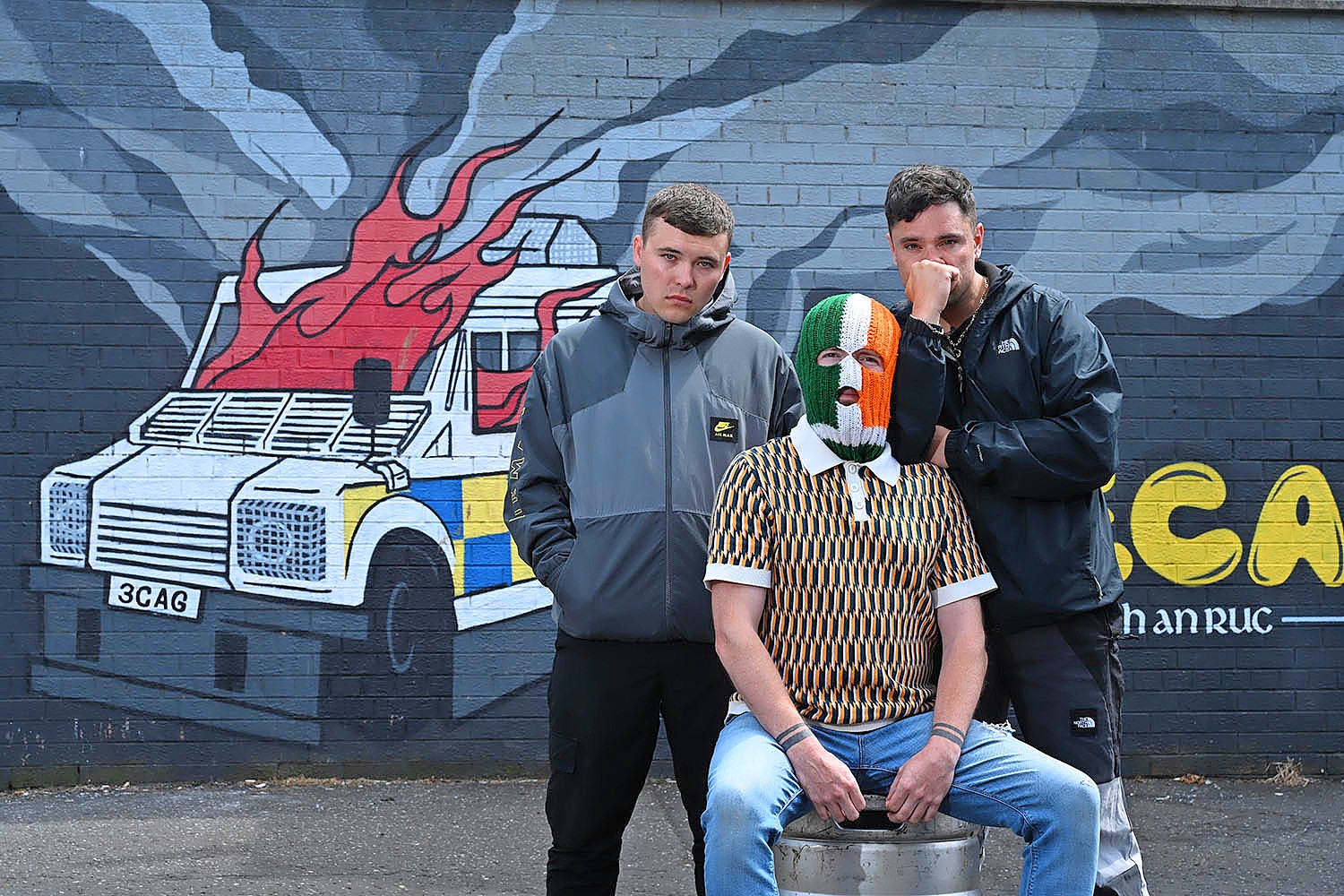Northern Irish rap group Kneecap exist to shock. They take their name from a brutal vigilante punishment associated with Republican paramilitaries, in which the “offender” is shot through the knee.
Band member DJ Próvaí (pronounced “provo”) wears a balaclava in the colours of the Irish flag. Their lyrics celebrate hard drugs and overthrowing the British state in roughly equal measure in roughly equal measure. If outrage generated is their metric of success, this has been a spectacular week for Kneecap.
A 2023 concert video surfaced that appeared to show the band saying: “The only good Tory is a dead Tory. Kill your local MP.” That is now being assessed by counter-terrorism police, along with a second clip from last year in which a member appears to say: “Up Hamas, up Hezbollah.” This followed the band’s controversy-baiting appearance at Coachella festival in California on 18 April, when Kneecap projected pro-Palestinian and anti-Israel slogans, and led the crowd in abusive chants. Although the performance was not shown on the festival livestream, images were shared on social media.
From there, things spiralled dramatically. Tory leader Kemi Badenoch and Labour MP David Taylor called for the band to be dropped from the forthcoming Glastonbury festival, as did the Board of Deputies of British Jews. Scotland’s first minister John Swinney said they were “beyond the pale”; Kneecap were the subject of an urgent question on “Irish Republican Alleged Incitement” in the House of Lords, while the families of murdered MPs Jo Cox and David Amess issued demands for apologies, which the band tendered, saying: “We never intended to cause you hurt.”
Kneecap denied supporting Hamas or Hezbollah, both proscribed organisations in the UK. But they also claimed to be the victims of a “co-ordinated smear campaign”. They were backed up by other artists, including Massive Attack, who accused “politicians and rightwing journalists” of “strategically concocting moral outrage … while simultaneously obfuscating or even ignoring a genocide”. It’s been a hurricane-force moral panic.
Stuart Bailie, the author of Trouble Songs: Music and Conflict in Northern Ireland, sees Kneecap as deeply embedded in the politics of the region. Band member Móglaí Bap’s father was a leading figure in the Irish language revival. “The area they come from in West Belfast puts a great emphasis on education – be a Gael, know your history,” says Bailie. But they also belong to what he calls “a tradition of delinquency and messing about. They play up to that.”
This is hardly Kneecap’s first time in the headlines. Last year, they became the subject of a political row when Badenoch (then business secretary) attempted to block a government grant to the band. The incoming Labour government dropped the case, and Badenoch accused Labour of cowardice and capitulation.
‘There is a tradition of delinquency and messing about. They play up to that.’
‘There is a tradition of delinquency and messing about. They play up to that.’
Stuart Bailie, author
Until now, though, all publicity has been good publicity for Kneecap. This time, it seems they may have gone too far. A scheduled performance at the Eden project in Cornwall was cancelled, as were two dates in Germany. The band’s booking agency IAG confirmed to the Hollywood Reporter that it was no longer representing Kneecap, leaving their work visas in doubt – along with their ability to work as a touring band at all.
The furore around Kneecap raises two significant issues. One of these is about freedom of expression in the arts, and the other is about Kneecap’s form of expression in particular.
For the writer Finn McRedmond, their paramilitary-kitsch aesthetic is “concurrent with a trend that the further the Troubles fall into the past, the blunter its edges become in the national psyche”.
Newsletters
Choose the newsletters you want to receive
View more
For information about how The Observer protects your data, read our Privacy Policy
Nationalist slogans are now “thrown around as a joke” – in 2022, the Irish women’s football team apologised for singing pro-IRA songs during victory celebrations.
But, says McRedmond: “There’s a big difference when a man in a balaclava does this. It reads serious.” Maybe that’s a little po-faced, but I don’t think being po-faced about the Troubles is a bad thing.
This episode has exposed the limits of Kneecap’s cartoonish activism. Their statements are dumb and undeniably offensive; the desperately traumatic history they have turned into a stage show is not even history for those who lived through it (and paramilitary groups still commit kneecappings). But it’s not the state’s business to keep culture clean. The truly dangerous part of this episode is the politicians choosing to appoint themselves as censors.

